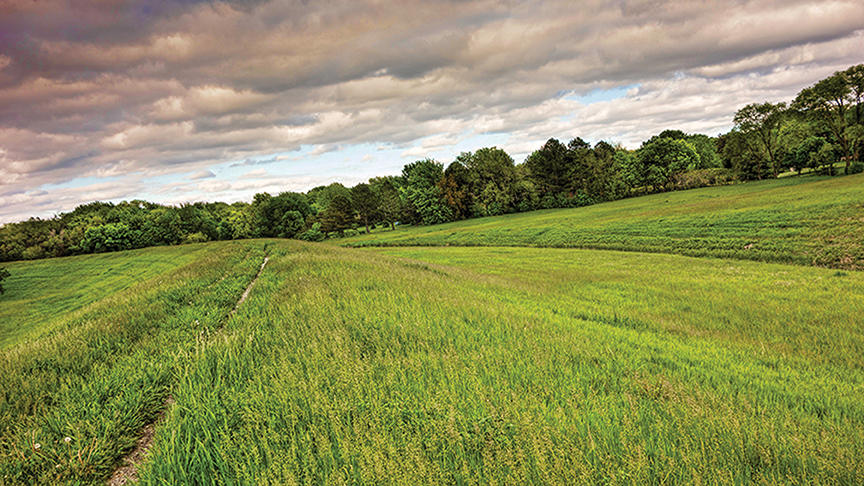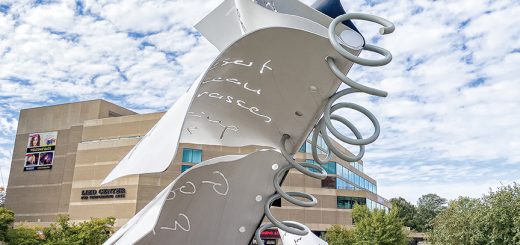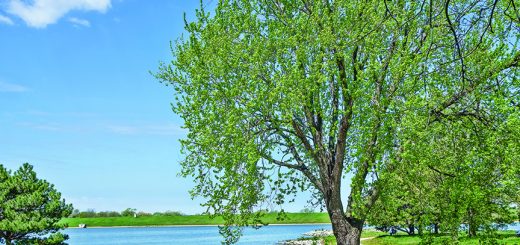A “Leap” of Faith in Lincoln’s Environmental Future

By Frank Uhlarik
In July of 2017, Mayor Chris Beutler released a draft of the “Lincoln Environmental Action Plan” or LEAP. The first formalized plan of its kind for Lincoln, the LEAP details our historic progress and proposes goals and strategies to improve Lincoln’s environmental and economic outcomes in the areas of Energy, Land Use, Transportation, Waste Management and Water Resources. Examples of proactive environmental initiatives undertaken by several Lincoln businesses are also highlighted in the plan in recognition of the leadership roles that many businesses provide in our community.
Goal statements and corresponding strategies laid out in the plan include the following:
Energy
Goal: Support and promote municipal and community-wide energy conservation and the increased use of renewable energy sources and technologies which decrease long-term fuel costs, cut greenhouse gas emissions and improve energy resilience. Strategies to achieve this goal include:
Conversion of the city’s streetlight system to Light Emitting Diode (LED) technology
Improving energy efficiency of municipal buildings via comprehensive audits and select facility upgrades
Greening of the fleet through investment in electric vehicles and units powered by Compressed Natural Gas (CNG) and/or Renewable Natural Gas (RNG)
Modernizing our residential and commercial energy code
Lowering the costs of residential and commercial solar installations through participation in the DOE’s SOLSMART program.
An innovative project closely linked to our energy goal is the revamping of the digester gas system at our Theresa St. Water Resource Reclamation Facility. The City is finalizing plans to capture and clean digester gas for injection into a commercial natural gas pipeline for use as a transportation fuel by City and/or private users. This project will take advantage of renewable energy credits which will provide a significant source of revenue for the City and is one of the first projects of its kind in the Midwest.
Land Use
Goal: Preserve and enhance Lincoln’s urban tree canopy and open space; seek opportunities to maximize the value of underutilized property through policies and initiatives supporting infill and urban agriculture. Strategies to be implemented include:
Development and implementation of a comprehensive plan to mitigate impending damage to the city’s tree canopy due to the emerald ash borer
Facilitation of a community wide review to identify underutilized properties that could be converted to productive use supporting urban agriculture. Potential uses might include community gardens/orchards as well as small scale commercial produce farming
Continuing to secure grant funding and solidify public/private partnerships engaged in conservation and enhancement of defined natural areas, greenways and critical habitat.
Transportation
Goal: Support continual improvements in Lincoln’s transportation system and encourage efficiency, multi modal choices and access, and investment in Smart City technology. Strategies to achieve this goal include:
Formalize an electric vehicle infrastructure strategy both for the municipal fleet and public transit as well as in preparation for the projected growth in personal electric vehicle ownership in Lincoln
Implement the Green Light Lincoln program for more environmentally friendly, safe and efficient traffic flow
Reduce vehicle traffic by increasing access to alternate transportation forms including support for public transit, bikeways, trails and sidewalk repairs.
Waste Management
Following on the heels of the City Council’s historic passage of a cardboard “land-ban” ordinance in 2017, Lincoln will be focused on public education and outreach relative to the cardboard diversion requirement and improving the overall efficiency of our recycling system. An aggressive goal to divert 50 percent of the community’s waste by 2030 will be backed up by this outreach effort along with piloting of a construction and demolition waste diversion program.
Water Resources
Goal: Ensure the quality and resilience of Lincoln’s water supply and watershed systems through comprehensive planning, conservation and funding support. Strategies include:
While continuing to evaluate long term water supply sources, Lincoln will continue to strive for a 110 gallon/day per capita water use benchmark through targeted conservation incentives and rate structures
Lincoln’s efforts to improve the quality of storm water runoff and prevent flooding rests on our ability to secure a stable source of watershed program funding in an uncertain federal and state budget environment. Funding sources including permit fees and potentially a storm water utility will be evaluated to support the community’s needs.
As an indication of the public’s interest in the topics addressed by LEAP, over 200 discrete comments and recommendations were received by the city during an extended public comment period. As of late October, public input was being reviewed and incorporated as appropriate into a revised version of the plan to present to the Lincoln City Council for adoption. The most current copy of the plan and public comments can be found on the city website, search keyword LEAP.




Recent Comments